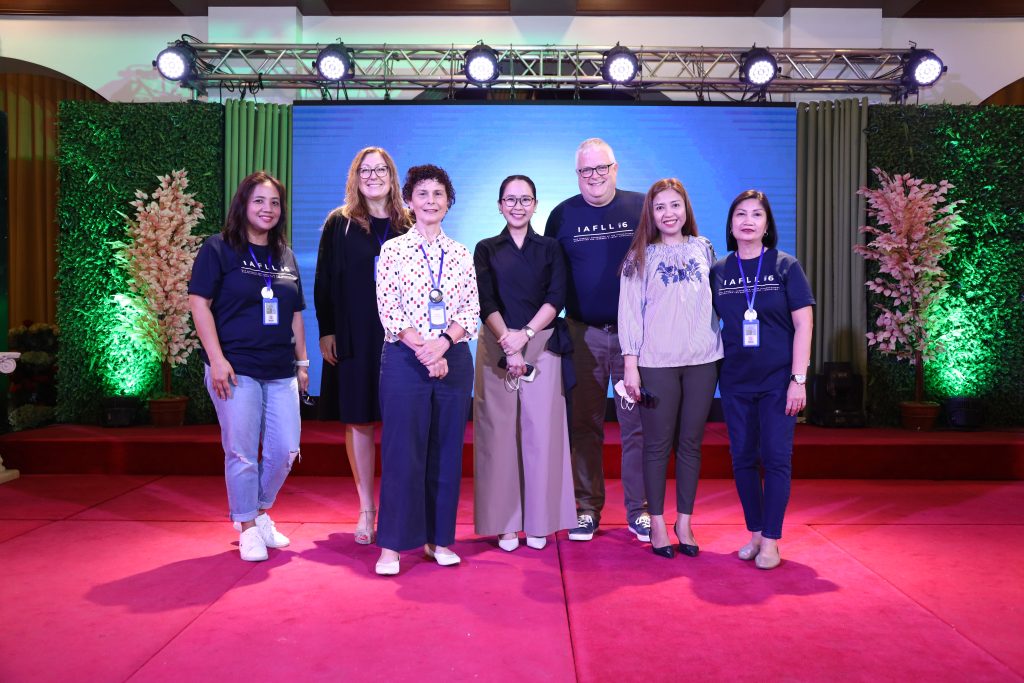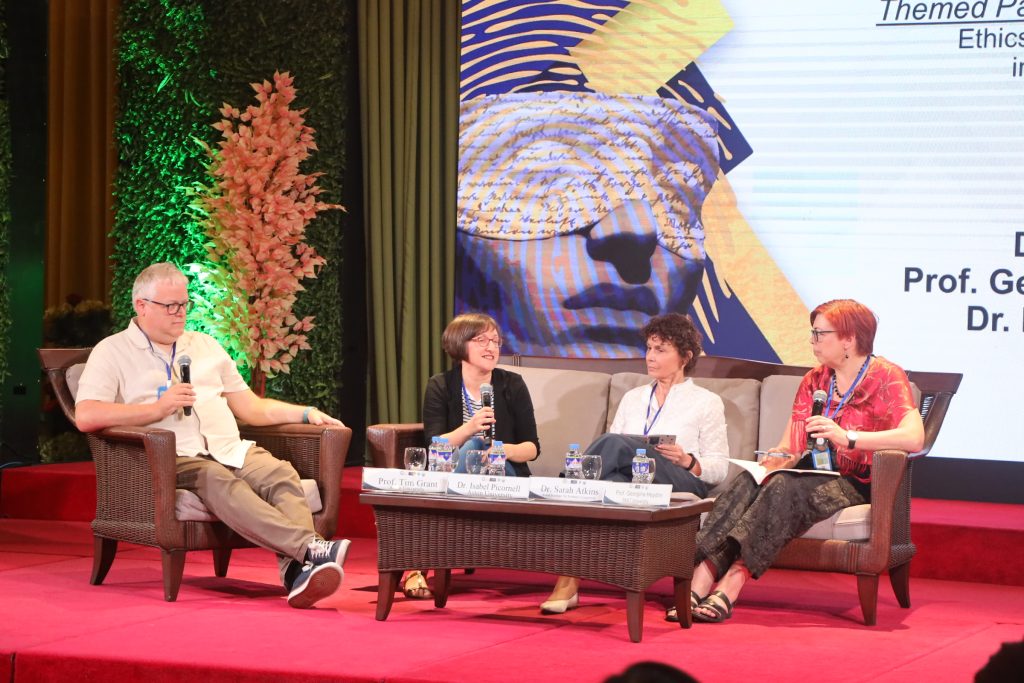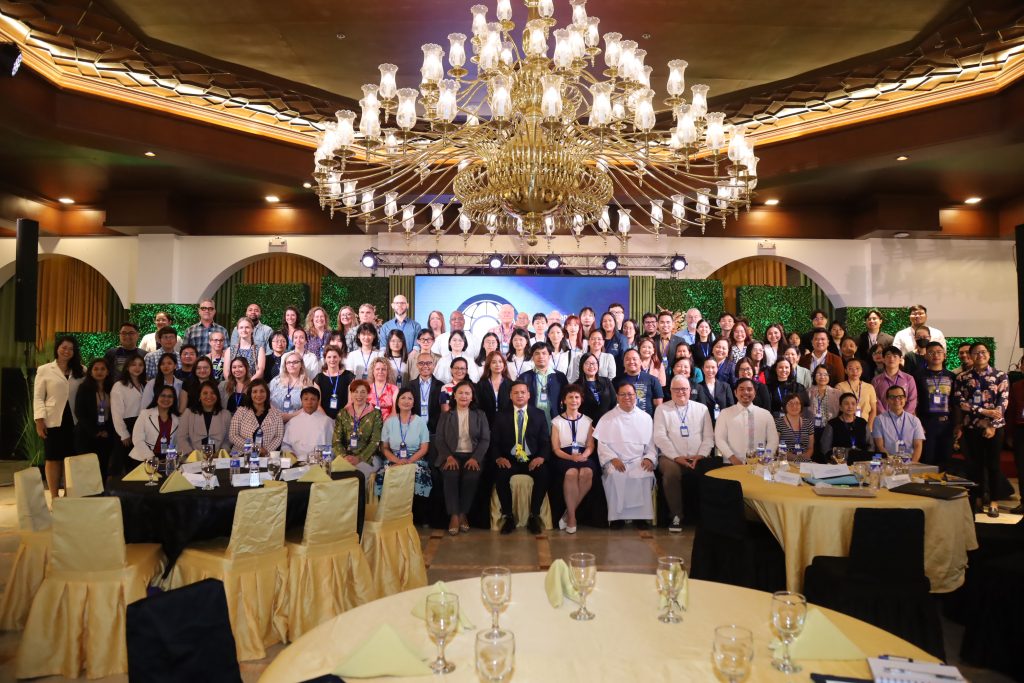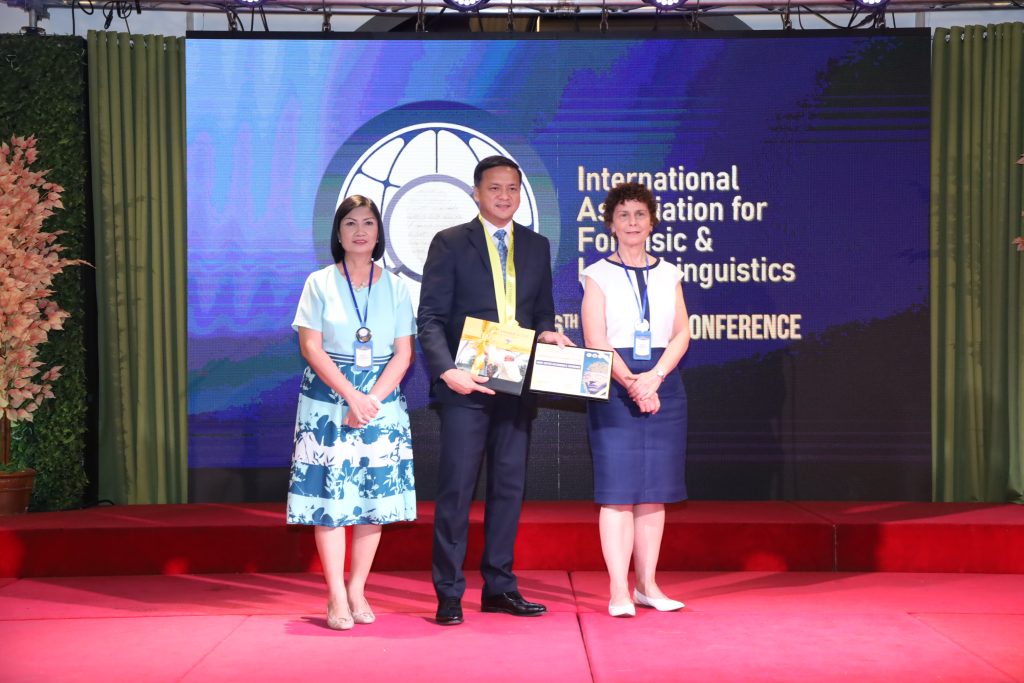The University of Santo Tomas Department of English, under the Faculty of Arts and Letters, hosted the 16th Biennial Conference of the International Association for Forensic and Legal Linguistics (IAFLL) from July 4 to 6, 2023 at the Grand Ballroom of the Buenaventura G. Paredes, O.P. (BGPOP) Building with the Supreme Court of the Philippines Chief Justice Alexander G. Gesmundo as the keynote speaker.




With the theme “Forensic Linguistics: Strengthening Foundations, Rethinking Paradigms, and Navigating New Horizons”, the conference brought together 134 forensic linguists, lawyers, educators, researchers, practitioners, and language enthusiasts from at least 22 countries around the globe, including Australia, Canada, China, France, Germany, India, Indonesia, Italy, Japan, Latvia, Malaysia, Mozambique, Nigeria, the Philippines, Poland, Portugal, South Africa, Spain, Taiwan, United Kingdom, the United States, and Uzbekistan.
During the hybrid event, a stellar lineup of speakers and panelists fostered insightful discussions, shared best practices, and explored innovative approaches within the field of forensic and legal linguistics.
In his keynote speech, delivered on his behalf by Associate Justice Justice Hon. Jose Midas Marquez, the Chief Justice Hon. Alexander Gesmundo emphasized the importance of artificial intelligence in areas like author recognition, language and document analysis, and real-time translation technologies to break through language barriers.
“Aside from potentially supercharging undertakings like language and document analysis and speaker and author recognition, of particular interest to those in multilingual jurisdictions such as ours is the development of machine learning for real-time translation tools to help overcome language barriers,” said Chief Justice Gesmundo.
The Chief Justice also highlighted the challenges and issues posed by biases, data privacy, security, and accuracy when using AI systems and stressed the significance of linguists remaining at the forefront of their field in order to address the complex intersections of law, language, and technology.
“Even with the torrent of such tools, we count on linguists such as yourselves to stay at the helm of the field, especially given the issues that are likely to arise when law, language, and technology intersect,” he said.
During the first day of the conference, Prof. Tim Grant, Director of Aston Institute of Forensic Linguistics (AIFL), Aston University in UK, delivered a plenary lecture on the role of explanation in forensic linguistic expert evidence, while the outgoing IAFLL President Dr. Isabel Picornell shared her knowledge and expertise on ethics and professional conduct oversight in forensic linguistic expert evidence.
Meanwhile, the second day of the conference featured the plenary lectures of Prof. Natalie Schilling of Georgetown University in the USA, focusing on enriching understandings of language expertise through work in forensic linguistics and Dr. Richard Powell, Vice President of Japan Association of Law and Language, who stressed on the value of multilingual law and its roles to multilingual human professionals.
The IAFLL incoming President Dr. Jennifer Glougie also delivered a plenary talk on tightening the reins of expert evidence; judicial gatekeeping in the Canadian context during the third and final day of the conference. Meanwhile, Dr. Susanto Saman, founder and president of Indonesian Community for Forensic Linguistics, shared some reflection thoughts from case studies of forensic linguistics in Indonesia.
Prof. Isabel Pefianco-Martin, the Chair of the Department of Educational Leadership and Management of Ateneo de Manila University, moderated a themed panel presentation that explored emerging challenges and innovative solutions within forensic and legal linguistics with Prof. Marilu R. Madrunio of UST, Atty. Senando Santiago of the University of the Philippines-Diliman and Dr. Laura Smith-Khan of the University of Technology, Sydney in Australia. In addition, Prof. Grant moderated another themed panel discussion diving into ethics and ethical conduct in Forensic linguistics with Dr. Sarah Atkins of Aston University in UK, Prof. Georgina Heydon of RMIT University in Australia and Dr. Isabel Picornell as panelists.
Participants also attended a cultural night where they witnessed captivating performances that showcased Filipino culture from the UST Salinggawi Dance Troupe, BA Dauncen, UST Conservatory of Music and UST Graduate School Ph.D. English Language Studies students. In line with IAFLL’s 30th founding anniversary, the biennial conference organizers also awarded the former IAFLL presidents with plaques of appreciation during the event to recognize their significant contributions to the field of forensic linguistics.
Prof. Marilu R. Madrunio led the organizing team of IAFLL 16 as the Conference Convener with Prof. Rachelle B. Lintao and Dr. Alejandro S. Bernardo as Conference Co-Conveners. The other members of the core committee were: Ms. Zenaida Reyes (San Beda-Alabang), Atty. Selenne Anne Leynes (UST), Dr. Raquel Jimenez (UST), Ms. Ma. Kaela Joselle Madrunio (UST), and Dr. Shielanie Dacumos (University of Rizal System-Binangonan). The members of the organizing committee were composed of the academic staff from the Department of English, English Language Studies students in the undergraduate and graduate levels as well as alumnae of the UST Graduate School affiliated with the University of Rizal System-Binangonan and Colegio San Agustin-Binan.
The next biennial conference of the IAFLL will be held at the University of Western Cape, South Africa in 2025.
The hybrid format allowed both in-person and virtual attendees to actively engage in the sessions, ensuring a truly global and inclusive event.




